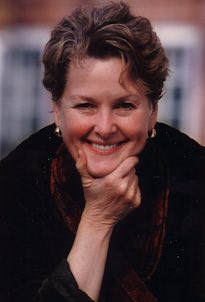Philanthropist, ambassador, and social activist, Swanee Hunt, has made her presence known the world over. Hunt began her philanthropic work in Denver where in 1981 she, with her sister, Helen, founded the Hunt Alternatives Fund.
For 16 years the Fund gave millions to neighborhood and minority groups, not funded by larger foundations, in the Denver area. Most of these more than 600 grassroots organizations were focused on families in poverty, particularly women and children, and included mental health care, homeless services and battered women shelters, areas of special concern to Hunt.
In 1987, she co-founded The Women’s Foundation of Colorado, which makes grants to empower women of all ages.
In 1993, President Clinton appointed Hunt United States Ambassador to the Republic of Austria, where she served for four years. During that time, she worked extensively as a political and social activist. She brought together business executives, politicians, government leaders, as well as cultural leaders, in order to further U.S. and Austrian interests.
Hunt played a key role in the creation of the Bosnian Women’s Initiative in 1996 and within that context, she was the keynote speaker for a women’s conference in Sarajevo with more than 500 participants from all over Europe. She personally funded the Vienna Women’s Initiative, which provided an opportunity for women leaders across all fields to come together to join forces.
In January 1998, she became the Director of Harvard’s Women and Public Policy Program (WAPPP) at the Kennedy School of Government. Hunt continued in her role as an educator and supporter of women leaders worldwide. The WAPPP focuses on public policies that significantly impact women and on the women who shape these policies.
In 2005, Hunt’s book This Was Not Our War: Bosnian Women Reclaiming the Peace won the Pen/New England Award for non-fiction. In addition to her writing, she is a talented photographer, composer, and speaker. Her mission is to achieve gender parity, especially as a means to end war and rebuild societies as well as to alleviate poverty and other human suffering.

